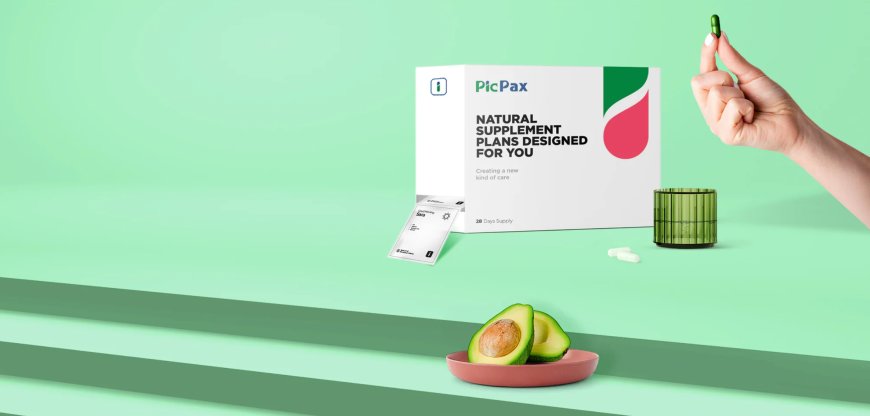Collagen and Nutrition: Foods to Pair with Your Collagen Supplement
Explore About Collagen and Nutrition: Foods to Pair with Your Collagen Supplement

Collagen supplements have gained popularity for their impressive benefits to skin, joint, and bone health. However, to maximize the effectiveness of collagen supplements, it’s essential to pair them with specific foods that support collagen synthesis.
This guide explores key food groups to include alongside your collagen supplement, so you get the most out of your investment in collagen health.
Vitamin C-Rich Foods for Enhanced Absorption
Vitamin C plays a crucial role in collagen synthesis, making it a perfect partner for your collagen supplement. This powerful antioxidant helps stabilize collagen molecules and boosts the body’s ability to absorb and utilize collagen. Without adequate vitamin C, your body can’t produce collagen efficiently, meaning the effectiveness of collagen supplements is reduced.
Incorporate vitamin C-rich foods like oranges, strawberries, bell peppers, and kiwi into your diet. These foods not only provide essential nutrients but also contribute to better absorption of collagen. Adding a glass of fresh orange juice or a bowl of strawberries to your morning routine can give your body a boost of vitamin C and help your collagen supplement work more effectively.
Protein-Packed Foods for Collagen Production
Collagen is a type of protein, so consuming additional protein sources can be beneficial in supporting collagen production. Protein-rich foods contain amino acids, particularly proline and glycine, which are key building blocks for collagen. Eating these foods alongside your collagen supplement can enhance the body’s ability to create and maintain healthy collagen levels.
Opt for lean meats, poultry, eggs, and fish, as these foods provide a high-quality protein source that supports collagen health. For plant-based protein sources, consider legumes, nuts, and seeds. Incorporating these protein-packed foods into your meals can provide essential amino acids that work in tandem with your collagen supplement.
Antioxidant-Rich Fruits and Vegetables
Oxidative stress from factors like pollution, sun exposure, and stress can break down collagen in the skin and other tissues. Antioxidant-rich fruits and vegetables help neutralize free radicals, protecting collagen from damage. By including antioxidant foods, you create a supportive environment for collagen stability and longevity.
Blueberries, spinach, kale, and tomatoes are excellent sources of antioxidants that help counteract oxidative damage. Adding a variety of colorful fruits and vegetables to your diet ensures a wide range of antioxidants, helping you maintain collagen health and achieve radiant skin.
Healthy Fats to Support Skin Health
Healthy fats, particularly omega-3 fatty acids, play a vital role in keeping skin hydrated and elastic. Since collagen is a crucial component of skin health, combining it with foods rich in healthy fats can improve skin’s overall texture and appearance. Omega-3s also help reduce inflammation, which is beneficial for collagen health.
Incorporate fatty fish like salmon and mackerel, as well as plant-based sources like flaxseeds, chia seeds, and walnuts. These healthy fats work well alongside collagen supplements to improve skin hydration and elasticity, ensuring you get the maximum benefit from your collagen regimen.
Zinc-Containing Foods for Collagen Formation
Zinc is another essential mineral that plays a role in collagen synthesis and repair. Zinc is required for the activation of proteins involved in collagen production and helps prevent collagen degradation. Pairing collagen supplements with zinc-rich foods can further support collagen synthesis and improve skin resilience.
Shellfish, pumpkin seeds, chickpeas, and nuts are excellent sources of zinc that you can easily add to your diet. Including these foods provides a natural boost to your collagen production and helps ensure that your body maintains a steady supply of collagen to support skin, hair, and joint health.
Sulfur-Rich Foods to Support Collagen Structure
Sulfur is a mineral that plays a crucial role in the formation of collagen bonds, giving it structure and stability. Sulfur-rich foods, when paired with collagen supplements, contribute to the strength and resilience of skin and connective tissues. They also help in detoxification, which can lead to healthier, more youthful skin.
Include sulfur-rich foods like garlic, onions, broccoli, and cauliflower in your diet. These foods help enhance the structural integrity of collagen, making it more resistant to breakdown. Adding these ingredients to meals supports your collagen supplement’s effects and promotes stronger, healthier skin.
Copper-Rich Foods to Enhance Collagen Cross-Linking
Copper is a trace mineral involved in collagen cross-linking, a process that strengthens collagen fibers. This makes copper-rich foods a valuable addition to your diet when taking collagen supplements. By enhancing cross-linking, copper helps make collagen more resilient and supportive for skin and joint health.
Foods such as shellfish, seeds, nuts, and dark chocolate are excellent sources of copper. Including these foods in your diet can help reinforce the benefits of collagen supplements, ensuring that the collagen your body produces is strong and durable.
Whole Grains for Skin and Collagen Health
Whole grains are a rich source of nutrients like selenium, which protects skin from oxidative stress, and B vitamins, which are essential for skin health. Although whole grains are not directly related to collagen synthesis, they provide complementary nutrients that help maintain healthy skin and support collagen’s role in skin resilience.
Brown rice, oats, quinoa, and whole-grain bread are some examples of whole grains you can incorporate into your daily meals. By pairing collagen supplements with whole grains, you’re supporting a balanced approach to skin health and overall wellness.
Hydration: The Foundation of Collagen and Skin Health
Proper hydration is vital for collagen’s functionality in the skin and connective tissues. Collagen requires adequate hydration to maintain its elasticity and ability to support skin structure. While water itself does not produce collagen, it is essential for keeping collagen healthy and resilient.
Drink plenty of water throughout the day and consider hydrating foods like watermelon, cucumber, and oranges. Hydration allows your collagen supplement to perform at its best by supporting skin elasticity and firmness, helping you achieve a healthy glow and smoother skin texture.
Conclusion
Incorporating these nutrient-rich foods into your diet can significantly enhance the effectiveness of your collagen supplement. By creating a diet rich in vitamins, minerals, and antioxidants that support collagen synthesis, you’re providing your body with the tools it needs to maintain healthy, youthful skin and resilient joints. For those in Dubai, collagen supplements paired with these foods offer a comprehensive approach to beauty and wellness from the inside out.
What's Your Reaction?





















